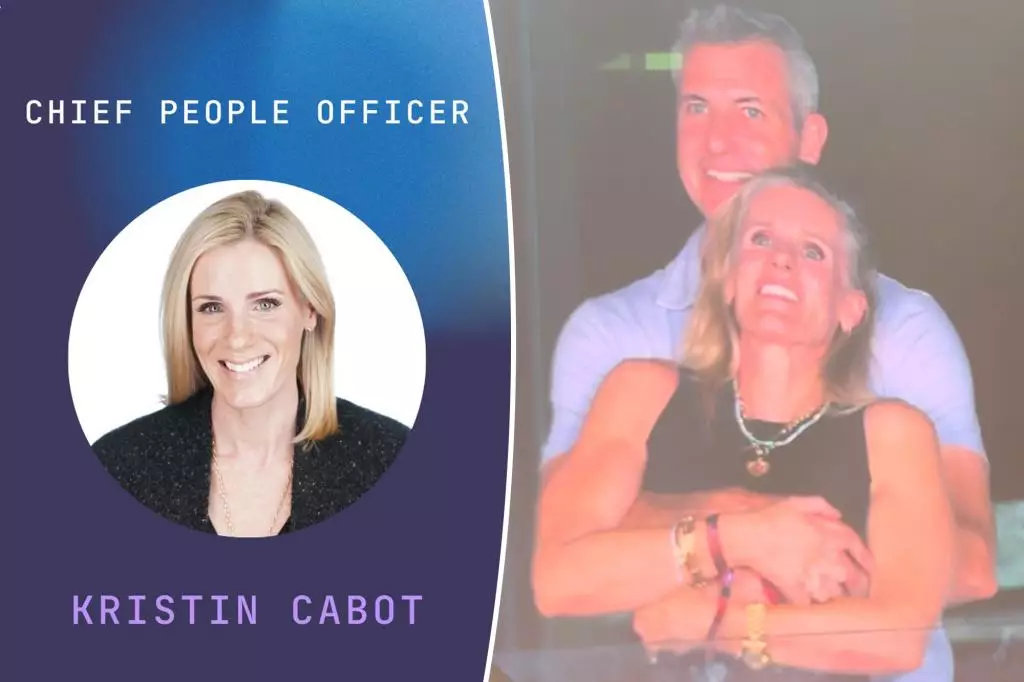In the corporate world, façade often masks underlying issues of arrogance and lack of integrity. Kristin Cabot, the self-proclaimed “fearless change agent,” exemplifies this paradox. Her boasts about “winning trust” across all organizational levels reflect a common tendency among high-ranking executives to overstate their influence and charisma. Such self-promotion signals an inflated self-perception that may serve as a smokescreen for internal insecurities or moral ambiguities. When individuals elevate personal branding over substantive leadership, they undermine the genuine trust essential for authentic organizational growth. Powerful titles and grandiose claims do little if not backed by authentic ethical conduct, which seems absent in the wake of recent revelations.
Furthermore, Cabot’s fervent self-assessment of cultivating “award-winning cultures” and attracting “top talent” hints at a performative narrative rather than real personnel development. The disconnect between her claims of fostering inclusive, innovative environments and her alleged inappropriate behavior highlights a dangerous gap between appearance and reality. Leadership that relies on bravado rather than authentic character risks fostering toxic workplaces where distrust and hypocrisy flourish. The corporate facade must be scrutinized, especially when flawed leaders use their influence not to serve the organization but to indulge personal ego and unprofessional impulses.
Unraveling the Power Play and Moral Failings at the Top
The incident at the Boston concert exposes a universal vulnerability: the human tendency to prioritize personal desires over professional integrity. Cabot and Byron’s public display of affection, caught on camera, reveals an utter disrespect for boundaries and professionalism. Their attempt to hide in the moment underscores a conscious awareness that their behavior conflicts with social or workplace expectations. But beyond the embarrassment and viral footage lies a deeper issue—an unchecked abuse of power.
Byron’s history, including allegations of a fearsome managerial style, compounds concerns about his leadership ethos. Reports of threatening dismissals and a culture around “challenging him at your peril” suggest a toxic environment where vulnerability is punished rather than supported. The combination of a ruthless leadership style and personal misconduct paints a portrait of a CEO wielding power more like a monarch than a moral compass. Such conduct erodes trust internally and tarnishes the reputation of the organization externally. Leaders, especially in the tech space, are often heralded as visionaries, yet their personal failings can undermine the innovative cultures they claim to build.
The public’s rushing to comment and judge reflects society’s increasing intolerance for hypocrisy among those in power. Byron’s wife’s deletion of her Facebook account symbolizes a retreat from public scrutiny, but it cannot erase the perception damage. In an era where transparency is demanded, leaders must recognize that personal misconduct—whether in private moments or professional decisions—inevitably widens the credibility gap. Power without moral accountability rarely sustains long-term respect or organizational health.
The Fragile Boundary Between Personal Ambition and Ethical Responsibility
This episode illustrates the perilous tightrope walk that modern executives must navigate, where personal ambition often conflicts with moral responsibilities. Byron’s previous reputation as a demanding boss, coupled with the recent scandal involving Cabot, suggests a pattern of behavior rooted in unexamined ego and entitlement. Such traits threaten to sabotage not only individual careers but also organizational integrity. When leaders prioritize their own gratification—whether through grandiose claims or indiscreet romances—they risk compromising the very trust that sustains their authority.
Moreover, this incident highlights the superficiality of certain corporate narratives. Statements of fostering diversity, collaboration, and innovative cultures ring hollow when those at the top behave irresponsibly. Such dissonance erodes faith from employees, clients, and stakeholders alike. Genuine leadership demands humility, accountability, and a recognition that wielding influence carries moral weight. True influence should inspire trust and model integrity, not conceal personal misconduct behind corporate buzzwords.
As observers, we must question the underlying values promoted by such leaders. Is the allure of power and image more seductive than genuine ethical conduct? The truth is that when leaders project strength but act unethically, they inadvertently undermine the very foundations of leadership. Power devoid of moral grounding ultimately leads to downfall—whether through scandal, loss of credibility, or internal dissent. The lessons here are clear: authenticity and moral responsibility are non-negotiable for those aspiring to lead with enduring impact.

